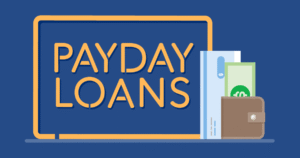Introduction to Opening a Small Business Bank Account
Starting a small business in the United States is an exciting venture, but it comes with financial responsibilities that require careful management. One of the first and most critical steps for any entrepreneur is how to open a Small Business Bank Account. This account serves as the foundation for managing business finances, ensuring compliance with tax regulations, protecting personal assets, and projecting professionalism to customers and partners. Whether you’re a sole proprietor running a freelance gig or a corporation launching a retail chain, a dedicated business bank account is non-negotiable.
The process might seem daunting—choosing the right bank, gathering documents, and navigating fees can feel overwhelming. However, with the right knowledge, you can make informed decisions that set your business up for success. This comprehensive guide, drawing from authoritative sources like the Small Business Administration (SBA), Bank of America, Capital One, and NerdWallet, will walk you through every aspect of opening a small business bank account. We’ll cover why it’s essential, how to do it step-by-step, what to consider when choosing a bank, common pitfalls to avoid, and practical tips tailored for US entrepreneurs.
By the end, you’ll have a clear roadmap to open a business bank account that aligns with your business needs, whether you’re a tech-savvy startup owner or a brick-and-mortar retailer. Let’s dive into the “what” and “why” of business banking and explore how to make it work for you.
Why You Need a Small Business Bank Account
Legal and Financial Separation
The primary reason How to Open a Small Business Bank Account is to separate your personal and business finances. This separation is crucial for legal, financial, and practical reasons. According to the SBA, mixing personal and business funds can jeopardize your personal liability protection, especially for business stris ctures like LLCs or corporations. For example, if your business faces a lawsuit, commingled funds could make it easier for creditors to target your personal assets, such as your home or savings.
From a tax perspective, the IRS requires clear delineation of business transactions to accurately report income and expenses. A dedicated business account simplifies bookkeeping, making it easier to track deductible expenses like office supplies or travel costs. Imagine trying to sort through a single bank statement filled with personal grocery purchases and business software subscriptions—tax season would be a nightmare. A business account ensures your financial records are organized, saving time and reducing errors when filing taxes.
Professionalism and Credibility
A business bank account enhances your professionalism. Customers expect to make payments to a business name, not an individual’s name. Writing checks or receiving payments under “Jane Doe” instead of “Doe’s Bakery” can erode trust and make your business appear less established. Additionally, a business account allows you to accept credit card payments, issue branded debit cards to employees, and integrate with payment processors like Square or Stripe, further elevating your brand’s credibility.
Access to Financial Tools and Credit
A business bank account unlocks access to financial tools tailored for businesses. These include merchant services accounts for processing card payments, business credit cards for managing expenses and building credit, and lines of credit for emergency funding or equipment purchases. For instance, Bank of America’s Business Advantage Banking offers tools like Cash Flow Monitor, which projects cash flow and integrates with QuickBooks, helping you manage finances efficiently. Similarly, Capital One’s Spark Business accounts provide integrations with accounting software like Xero, enhancing operational efficiency.
Building a business credit history is another key benefit. By using a business bank account and associated credit products responsibly, you establish a credit profile separate from your personal credit. This can lead to better terms on loans or higher credit limits, which are critical for scaling your business.
Compliance and Scalability
For businesses with employees or complex structures (e.g., LLCs, partnerships), an EIN (Employer Identification Number) is typically required, and banks mandate a business account to comply with federal regulations. Even sole proprietors benefit from a business account, as it prepares you for future growth. For example, if you plan to hire employees or apply for a business loan, a dedicated account demonstrates financial discipline to lenders and investors.
Types of Small Business Bank Accounts
Understanding the types of accounts available is essential before you open a small business bank account. Each serves a specific purpose, and choosing the right combination depends on your business’s size, transaction volume, and financial goals. Below are the main types outlined by sources like NerdWallet and the SBA.
Business Checking Accounts
A business checking account is the cornerstone of your financial operations. It’s used for daily transactions, such as paying suppliers, receiving customer payments, and covering operational expenses. Key features include:
- Transaction Capabilities: Supports checks, ACH transfers, wire transfers, and debit card payments.
- Digital Tools: Most banks offer online banking, mobile check deposits, and integrations with accounting software.
- Examples:
- Bank of America Business Advantage Fundamentals™ Banking: Offers 200 free transactions and $7,500 in free cash deposits per month, with a $16 monthly fee (waived with a $5,000 balance).
- Capital One Spark Business Basic Checking: Includes 250 free transactions and $10,000 in free cash deposits, with a $15 monthly fee (waived with a $2,500 balance).
Business Savings Accounts
A business savings account is designed for storing excess funds, earning interest, and preparing for future expenses like taxes or equipment purchases. These accounts typically offer:
- Interest Earnings: Variable APYs, though rates vary (e.g., online banks like Bluevine offer up to 2.0% APY).
- Limited Transactions: Federal regulations may limit withdrawals to six per month.
- Examples:
- Capital One Spark Business Savings: $3 monthly fee, waived with a $300 daily balance, with variable APY.
- Bank of America Business Advantage Savings: $10 monthly fee, waived when linked to a Relationship Banking account.
Merchant Services Accounts
A merchant services account enables businesses to accept credit and debit card payments. These can be traditional accounts through banks or third-party processors like PayPal or Stripe. Key features include:
- Payment Processing: Supports in-person (via card readers) and online transactions.
- Integration: Often integrates with e-commerce platforms or POS systems.
- Examples: Both Bank of America and Capital One partner with processors like Square or Stripe, offering mobile payment solutions for small businesses.
Business Credit Cards
A business credit card helps manage expenses, build credit, and earn rewards. Benefits include:
- Rewards: Cash back (e.g., Capital One Spark Cash Plus: 2% cash back), travel miles, or purchase discounts.
- Expense Tracking: Simplifies categorization of business expenses.
- Examples: Capital One’s Spark Miles card offers 2x miles on all purchases, while Bank of America’s business credit cards integrate with Preferred Rewards for enhanced benefits.
Step-by-Step Guide to Opening a Small Business Bank Account
Opening a small business bank account involves several steps, as outlined by the SBA, NerdWallet, Bank of America, and Capital One. Below is a detailed guide to ensure a smooth process.
Step 1: Determine Your Business Needs
Before choosing a bank, assess your business’s financial needs. Consider:
- Transaction Volume: How many transactions (checks, deposits, withdrawals) will you process monthly? High-volume businesses may prefer accounts with unlimited transactions, like Capital One’s Spark Business Unlimited Checking.
- Cash Handling: Retail or restaurant businesses handling cash need accounts with generous free deposit limits (e.g., Bank of America’s $7,500 or Capital One’s $10,000).
- Digital Tools: If you rely on accounting software, prioritize banks with integrations (e.g., QuickBooks, Xero).
- Physical Access: If you need in-person support, choose banks with extensive branch networks, like Bank of America’s 4,300 financial centers.
For example, a freelance graphic designer might prioritize low-fee online banks like Bluevine, while a retail store owner might prefer Bank of America for its ATM network.
Step 2: Choose the Right Bank
Selecting a bank requires comparing fees, features, and accessibility. NerdWallet recommends evaluating at least three banks, considering:
- Fees: Look for low or no monthly fees. Capital One’s Basic Checking ($15, waived with $2,500 balance) is more affordable than Bank of America’s Fundamentals Banking ($16, waived with $5,000).
- Promotional Offers: Banks often provide cash bonuses. Capital One offers $500 for maintaining a $5,000 balance for 60 days, while Bank of America offers $200 for a $5,000 balance over 90 days.
- Online vs. Traditional Banks:
- Online Banks: Bluevine and Novo offer no monthly fees and high APYs (e.g., Bluevine’s 2.0% on checking balances up to $100,000) but lack physical branches.
- Traditional Banks: Bank of America and Chase provide branch access but may have higher fees.
- Credit Unions: Offer low fees but require membership and have limited networks.
Step 3: Gather Required Documentation
To open a small business bank account, you’ll need specific documents, as outlined by all sources. Requirements vary by business type:
- All Businesses:
- EIN: Obtain from the IRS (free at irs.gov). Sole proprietors without employees can use their Social Security Number.
- Personal Information: Government-issued photo ID, Social Security number, address, date of birth.
- Beneficial Ownership: For owners with 25%+ stake or significant control, provide name, address, SSN/passport, and ownership percentage.
- By Business Type:
- Sole Proprietorship: Business license or DBA certificate.
- Partnership: Partnership agreement, DBA, business license.
- LLC: Articles of organization, operating agreement, business license.
- Corporation: Articles of incorporation, bylaws, business license.
Some banks, like Bank of America, may request additional documents (e.g., proof of address) post-application.
Step 4: Apply for the Account
Most banks offer online, in-person, or phone applications:
- Online: Fastest option, with decisions often immediate (e.g., Capital One’s online application). Upload documents digitally.
- In-Person: Visit a branch with documents. Ideal for businesses needing immediate debit cards or in-person support.
- Phone: Call bank support lines (e.g., Bank of America: 888.BUSINESS; Capital One: 800-655-6771) for guided applications.
Step 5: Fund the Account
After approval, make an initial deposit via:
- ACH Transfer: From an existing account.
- Check/Money Order: Deposited in-person or mailed.
- Debit/Credit Card: Some banks (e.g., Bank of America) accept card payments for initial deposits.
- Minimum Deposits: Vary from $0 (online banks) to $100+ (traditional banks).
Step 6: Set Up Additional Services
Once the account is open, configure:
- Online/Mobile Banking: Enroll for 24/7 access, mobile check deposits, and bill pay.
- Debit Cards: Request cards for yourself and employees, with spending limits if needed.
- Merchant Services: Set up payment processing for card transactions.
- Overdraft Protection: Link to a savings account to avoid fees (e.g., Bank of America’s Balance Connect, $10 per transfer).
Comparing Top Banks for Small Business Accounts
To help you choose, let’s compare offerings from Bank of America, Capital One, and other banks mentioned by NerdWallet, focusing on fees, features, and suitability.
Bank of America Business Advantage Banking
- Accounts:
- Fundamentals Banking: $16/month, waived with $5,000 balance. 200 free transactions, $7,500 free cash deposits.
- Relationship Banking: $29.95/month, waived with $15,000 balance. Unlimited transactions, no fees for wires or stop payments.
- Features: Business Advantage 360 platform, QuickBooks/ADP/Zelle integration, Preferred Rewards for Business (interest rate boosts, loan discounts).
- Bonus: $200 for $5,000 balance over 90 days.
- Best For: Businesses needing branch access (4,300 centers, 16,900 ATMs) and robust digital tools.
Capital One Spark Business Accounts
- Accounts:
- Basic Checking: $15/month, waived with $2,500 balance. 250 free transactions, $10,000 free cash deposits.
- Unlimited Checking: $35/month, waived with $25,000 balance. Unlimited transactions/deposits.
- Savings: $3/month, waived with $300 balance. Variable APY.
- Features: QuickBooks/Xero/Square integration, mobile banking with Zelle, $500 bonus for $5,000 balance over 60 days.
- Best For: Tech-savvy businesses with moderate balances seeking low fees and digital integrations.
Other Options (NerdWallet Recommendations)
- Bluevine Business Checking:
- Fees: $0 monthly, no minimum balance.
- Features: 2.0% APY on balances up to $100,000, unlimited transactions, mobile check deposits.
- Best For: Startups or freelancers prioritizing low fees and high interest.
- Chase Business Complete Banking:
- Fees: $15/month, waived with $2,000 balance or specific activities.
- Features: 200 free transactions, $5,000 free cash deposits, QuickBooks integration, extensive branch/ATM network.
- Best For: Businesses needing physical banking and promotional bonuses (up to $300).
- Credit Unions: Offer low fees but require membership. Best for local businesses with simple needs.
Key Considerations
- Low Fees: Online banks like Bluevine are ideal for cost-conscious startups, while traditional banks suit businesses needing in-person services.
- Bonuses: Capital One’s $500 bonus is more generous than Bank of America’s $200, but both require sustained balances.
- Scalability: Banks like Bank of America offer advanced services (e.g., payroll, merchant services) for growing businesses.
Common Mistakes to Avoid
Opening a business bank account is straightforward, but pitfalls can complicate the process. Here are common mistakes and how to avoid them:
1. Not Comparing Banks
Choosing the first bank you encounter can lead to higher fees or limited features. For example, a retail business with high cash deposits might face fees with Bank of America’s Fundamentals account ($7,500 free deposit limit) but not with Capital One’s Unlimited Checking. Always compare at least three banks, as NerdWallet suggests.
2. Ignoring Fees
Monthly fees, transaction fees, and cash deposit fees can erode profits. For instance, Bank of America charges 30 cents per $100 for cash deposits over $7,500, while Bluevine has no such fees. Review fee schedules and prioritize accounts with waivers.
3. Failing to Gather All Documents
Incomplete documentation can delay account opening. Ensure you have your EIN, business formation documents, and beneficial ownership details ready. Double-check bank requirements, as some may request additional items like proof of address.
4. Overlooking Digital Tools
Modern businesses rely on digital tools for efficiency. Choosing a bank without integrations (e.g., QuickBooks, Zelle) can hinder bookkeeping. Capital One and Bank of America excel here, but online banks like Bluevine offer superior APYs.
5. Not Planning for Growth
A basic account might suffice for a freelancer but not for a growing LLC. Choose a bank with scalable services, like Bank of America’s Preferred Rewards or Capital One’s Unlimited Checking, to support future needs.
Practical Applications and Examples
To illustrate, let’s explore two hypothetical US small businesses and how they might choose a bank account:
Case Study 1: Freelance Graphic Designer in Seattle
- Business Profile: Sole proprietor, low transaction volume (20–30/month), minimal cash, $3,000 monthly revenue.
- Needs: Low fees, digital tools, high APY.
- Best Choice: Bluevine Business Checking.
- Why: No monthly fees, 2.0% APY on balances, unlimited transactions, QuickBooks integration.
- Process: Applies online with SSN, DBA certificate, and ID. Funds account with $500 via ACH transfer.
- Outcome: Saves on fees, earns interest, and manages finances via mobile app.
Case Study 2: Coffee Shop in Atlanta
- Business Profile: LLC, high cash deposits ($15,000/month), 300 transactions/month, needs merchant services.
- Needs: Branch access, high deposit limits, payment processing.
- Best Choice: Bank of America Business Advantage Relationship Banking.
- Why: Unlimited transactions, $15,000 balance waives $29.95 fee, extensive ATM/branch network, Square integration.
- Process: Visits branch with EIN, articles of organization, and ID. Funds account with $5,000 check to qualify for $200 bonus.
- Outcome: Handles cash deposits efficiently, accepts card payments, and accesses in-person support.
These examples show how aligning bank choice with business needs ensures efficiency and cost savings.
Broader Context: Financial Management for Small Businesses
Opening a business bank account is just one part of financial management. Consider these related factors:
Bookkeeping and Accounting
A business account simplifies bookkeeping by isolating transactions. Use software like QuickBooks or Xero, integrated by banks like Capital One and Bank of America, to categorize expenses and prepare for taxes. Regular reconciliation ensures accuracy.
Tax Preparation
A dedicated account makes it easier to track deductible expenses (e.g., office supplies, travel) and calculate quarterly estimated taxes. Consult a CPA to maximize deductions and ensure compliance.
Cash Flow Management
Tools like Bank of America’s Cash Flow Monitor or Capital One’s mobile app help project cash flow, monitor transactions, and avoid overdrafts. Set aside funds in a savings account for taxes or emergencies.
Building Business Credit
Use a business credit card responsibly to establish credit, which can lead to better loan terms. Both Bank of America and Capital One offer cards with rewards, ideal for startups.
Safety Precautions and Compliance
When opening a business bank account, prioritize safety and compliance:
- Protect Sensitive Information: Share EIN and beneficial ownership details only with reputable banks. Use secure online portals for applications.
- Monitor for Fraud: Enroll in transaction alerts and review statements regularly. Both Bank of America and Capital One offer $0 fraud liability on debit cards.
- Comply with IRS Rules: Obtain an EIN for LLCs, partnerships, or corporations. Sole proprietors can use an SSN but should consider an EIN for privacy.
- Understand Terms: Read fee schedules and bonus terms carefully. For example, Capital One’s $500 bonus is taxable as interest income.
Frequently Asked Questions
Do I need an EIN to open a business bank account?
Not always. Sole proprietors without employees can use their Social Security Number. However, an EIN is required for LLCs, partnerships, corporations, or businesses with employees. Obtain one free at irs.gov.
What documents are required to open a business bank account?
You’ll need an EIN (or SSN for sole proprietors), government-issued ID, business formation documents (e.g., articles of organization, DBA certificate), and beneficial ownership details for owners with 25%+ stake.
Can I open a business bank account online?
Yes, many banks like Capital One and Bluevine offer online applications with immediate decisions. Traditional banks like Bank of America may also allow online applications but sometimes require in-person verification.
What’s the best bank for a small business?
It depends on your needs. Bluevine is ideal for low fees and high APYs, Bank of America for branch access, and Capital One for digital tools and bonuses. Compare at least three banks for the best fit.
Disclaimer: This content is for informational purposes only. Always consult a qualified financial professional or banker for advice specific to your business needs.



